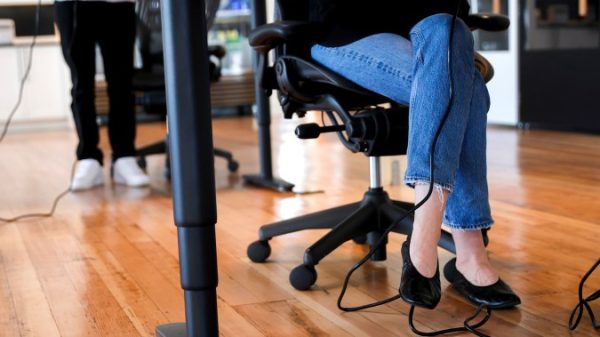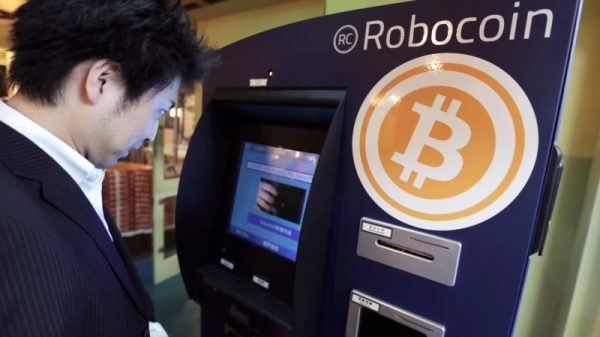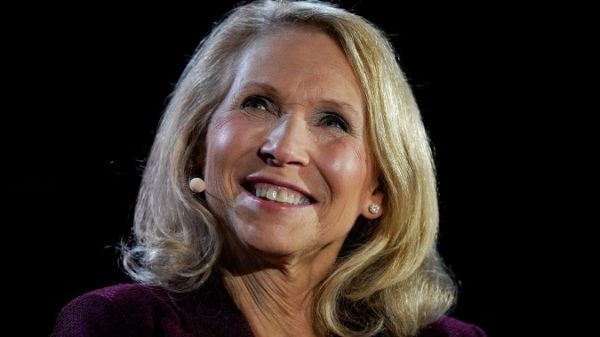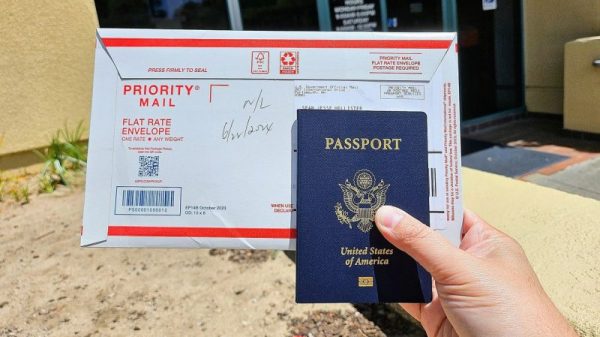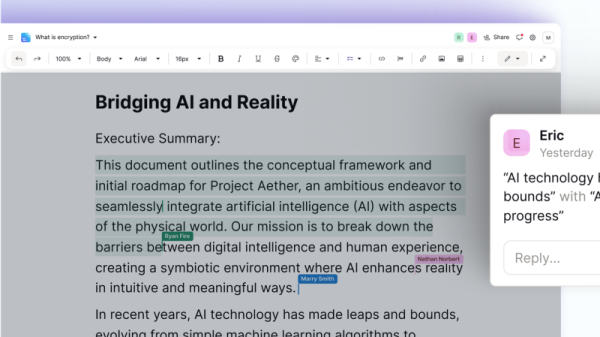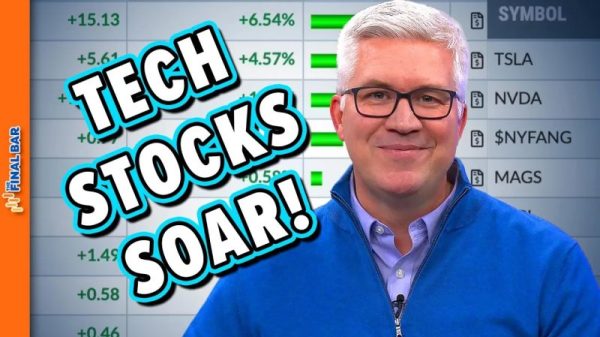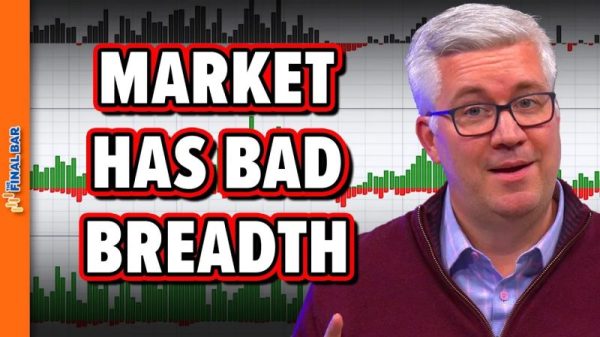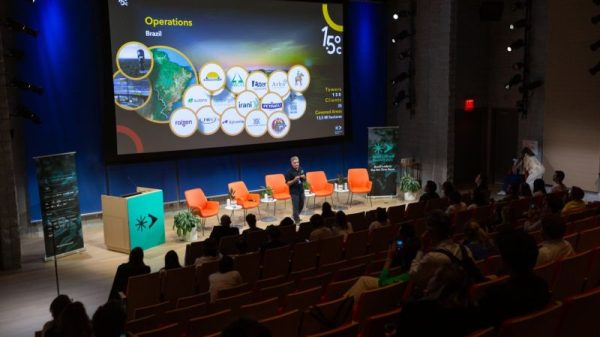On Tuesday morning, Donald Trump announced on social media that he was the target of a federal investigation into overturning the 2020 election. After playing golf, he flew to Iowa where he visited a caucus training and talked about the case in interviews and in remarks at a county GOP meeting. Then he returned to New Jersey, spending the flight reading printouts, calling confidants, complaining about prosecutors and DJing, according to people with knowledge of the trip. All the while, he posted all-caps exclamations on social media attacking the charges against him.
In other words, it was another day on the trail for the Republican polling leader for the 2024 nomination — with many more like it to come.
Any distinction between the former president’s White House bid and his criminal defense is vanishing as the charges against him mount. Fighting those prosecutions is increasingly dominating his time, resources and messaging, making the centerpiece of his candidacy an appeal to stay out of prison. As he forges ahead, much of the Republican base appears to be cheering him at each turn.
What is likely to come is a campaign like the country has never seen before: A candidate juggling multiple criminal indictments while slashing the Department of Justice and his opponents, shuttling between early primary states for rallies and courtrooms for hearings, and spending his supporters’ money on both millions of dollars’ worth of campaign ads and burgeoning legal bills.
Many of his aides are both advising him and could be witnesses against him in trials, putting them in uncomfortable spots.
Whether Trump wins or loses the presidential race could determine whether he faces a real risk of going to prison — a fact on his mind and the minds of some of his advisers.
“I didn’t know practically what a subpoena was and grand juries and all of this — now I’m like becoming an expert,” Trump said in his speech on Tuesday to the Linn County Republican Party in Cedar Rapids, Iowa. “I have no choice because we have to. It’s a disgrace. If you say something about an election, they want to put you in jail for the rest of your life.”
To illustrate how Trump’s criminal defense is swallowing his campaign, just over half of the money he raised last quarter went not to the campaign itself but to an affiliated PAC that is footing the legal bills. Of more than $35 million raised between March and June, the campaign received $17.7 million, according to the latest report to the Federal Election Commission. The rest went to the Save America PAC, which will report its latest finances on July 31 but has been spending millions on lawyers representing Trump and allies in the multiple ongoing cases, according to FEC disclosures.
“A lot of money is going to legal and people who don’t do much, and not a lot is left over to do marketing and advertising,” said one Trump adviser, who like others spoke on the condition of anonymity to discuss internal plans. “A lot of the money we’re raising is just going to legal.”
Campaign spokesman Steven Cheung said the political and legal efforts are blending together because Trump and his supporters view the prosecutions as President Biden’s effort to stop him. “They see another political indictment or target letter and they know this is just the weaponized Biden Justice Department going after President Trump,” he said. “It solidifies in their mind what the President has been saying for all these months. So much of the legal messaging is political messaging and so much of political messaging is legal messaging.”
Biden has said he “never once, not one single time, suggested to the Justice Department what they should do or not do relative to bringing a charge or not bringing a charge.”
Trump is not relying on his personal fortune to cover his legal bills. His latest financial disclosure revealed new details about roughly $1 billion in earnings during a period covering much of his post-presidency.
Ken Cuccinelli, an adviser to the super PAC supporting Florida Gov. Ron DeSantis, said, “Trump’s supporters are being taken advantage of by having to foot the bill for Trump’s legal troubles.” He added, “Gov. DeSantis is forwardly focused on saving our country and Donald Trump is yet again focused on Donald Trump.”
Devoting funds to legal fees in the way Trump’s operation does stands out in the GOP field — a factor rival operatives noted. “I can tell you we have not spent a lot of money on legal fees,” said Chip Saltsman, national campaign chairman for former vice president Mike Pence.
Advisers said Trump focuses his attention on polling, the electoral implications of the indictments and how to fight back against the prosecutors. Trump and his advisers often counter attacks by citing polls that show Republicans are still with him — and positive surveys are regularly shown to him. They are also mindful that the clearest way for Trump to beat the charges is to win back the White House, which would make him immune to prosecution again as president under Justice Department guidelines. Several advisers described an effort to make him almost martyr-like and said that he is resolute to keep campaigning.
“He just sort of accepts this is his life now, and he’s got to win,” one adviser said.
The campaign is now planning for Trump to run for president while facing four separate trials spanning a range of criminal charges: Manhattan district attorney Alvin Bragg’s indictment accusing Trump of paying hush money to an adult film actress before the 2016 election; special counsel Jack Smith’s indictment in Florida in June accusing Trump of mishandling classified documents; a potential indictment from Smith’s investigation into attempts to overturn the 2020 election and Jan. 6, 2021; and a potential one from an Atlanta-area district attorney’s probe into efforts to overturn Trump’s electoral defeat in Georgia.
Ongoing investigations involving Donald Trump
1/6
End of carousel
The campaign had expected the Georgia case to come next and was surprised last Sunday by Smith’s target letter, according to advisers. In contrast to the documents case, which Trump aides and lawyers expected to lead to charges, many did not expect the same outcome from the Jan. 6 case. Now the campaign is planning for another indictment as early as next week, according to aides who spoke on the condition of anonymity to discuss internal plans, with a pugilistic speech, fundraising appeals and taped videos all probable components of their response.
“This was nothing that anybody even anticipated for making a speech, and a very good speech,” Trump said Tuesday in an interview with Doug Wagner on WHO NewsRadio 1040, referencing a speech he gave on Jan. 6 that included incendiary and false rhetoric about the election. “Most people are very surprised that this was ever even brought … They want to try to bloody up so you can’t beat Biden.”
Jason Miller, a longtime adviser to Trump, said fundraising is already in “overdrive” and “we are prepared politically for any scenario that the deep state throws at us.” Miller said that Trump is accustomed to being under “witch hunts,” citing two impeachment trials, the Mueller investigation, the Jan. 6 committee and now multiple criminal investigations. Advisers say Trump supporters give the most money when they feel he is under attack.
“It starts to all blend together,” Miller said. “People get and understand the fact that these legal attacks are nothing more of an insurance policy to try and stop him from getting back to the White House.”
Trump has demanded that some of his allies go on TV and defend him — and his campaign and allies often attack Republicans who do not defend him when he faces yet another indictment.
The campaign is being upfront with its supporters about putting resources toward Trump’s legal defense, frequently framing fundraising appeals around the investigations. “Please make a contribution to show that you will NEVER SURRENDER our country to tyranny as the Deep State thugs try to JAIL me for life,” one Tuesday message read. The campaign said it raised more than $4.5 million online and another $2.1 million at a high-dollar event in the immediate wake of the June federal indictment in the documents case.
As the legal and political efforts merge, the campaign is no longer enforcing traditional boundaries between the teams, with the understanding that aides’ involvement in discussions about the cases could lead them to face their own subpoenas or liability down the road. Their arguments in court are now mirroring Trump’s remarks on the trail — emphasizing the prosecution of a leading opposition candidate by the incumbent administration.
“You have essentially the two right now leading candidates for the presidency of the United States squaring off against each other in the courtroom,” Trump attorney Chris Kise said at a hearing on Tuesday in the documents case in Florida.
As the campaign faces the unprecedented logistical challenge of campaigning across the country while also sitting through multiple ongoing criminal proceedings, Trump’s lawyers have indicated they hope to delay the trials until after the election.
“The fact that we’re talking about the volume of discovery, the schedules that we have, and the schedule of President Trump, we’re not asking for special treatment. That’s the reality,” Trump attorney Todd Blanche said at the Florida hearing. “I’m not making that schedule up, I’m not making up any facts here.”
The judge overseeing the documents case, Trump appointee Aileen M. Cannon, has not yet ruled on the schedule. The New York trial was preliminarily scheduled for March but such dates often slip.
One 24-hour span this week showed the challenges of doing both. On Monday, the day after Trump became aware of the target letter in the Smith case, he both huddled with his lawyers and met with Ronna McDaniel and David Bossie, Republican National Committee officials urging him to participate in the first debate, according to people with knowledge of the situation. Trump did not give an answer either way during the meeting.
A Trump adviser said Trump was more interested in doing an event where he doesn’t share the stage with other candidates and “he’s highly unlikely to participate.” This person said Trump could always change his mind and was continuing to ask people about the benefits and drawbacks of participating. His core argument at this point, one adviser said, is that he would bestow legitimacy on the debates and give candidates who are trailing him in the polls a chance to attack him politically. Other candidates, particularly former New Jersey governor Chris Christie, a vocal Trump critic, have signaled they will bring up the multiple indictments at the debate.
“Republican voters deserve, as does the country, to hear from Trump on the debate stage explaining his actions leading up to January 6th, his demands of officials in Georgia and why he didn’t return classified documents after repeated requests from the National Archives,” said Bill Palatucci, who is running a pro-Christie super PAC. “Otherwise, he deserves everything he gets from the other candidates who will be on the stage.”
The Trump team has enjoyed seeing Trump dominating the news, even when the news is about criminal charges. In particular, aides delighted to see the broadcast of DeSantis’s much-hyped CNN interview on Tuesday interrupted for updates about Trump’s target letter and the hearing in the Florida case.
DeSantis joined most other Republicans in defending Trump this week and suggesting he shouldn’t be prosecuted for his conduct on Jan. 6. Even the more critical rivals, such as Christie and former Arkansas governor Asa Hutchinson, predicted another indictment would follow the pattern of boosting Trump’s standing in the primary, at least in the short-term.
“I expect his poll numbers to go up again,” Hutchinson, who has called on Trump to suspend his campaign, said. “Over the long term you have to believe that people are under going to understand the seriousness of it, you’re going to see the challenge of being a president or even being a candidate with multiple indictments against you, and that is going to jeopardize us winning in 2024.”
Perry Stein in Washington and Marianne LeVine in Meredith, N.H., contributed to this report.
On Tuesday morning, Donald Trump announced on social media that he was the target of a federal investigation into overturning the 2020 election. After playing golf, he flew to Iowa where he visited a caucus training and talked about the case in interviews and in remarks at a county GOP meeting. Then he returned to New Jersey, spending the flight reading printouts, calling confidants, complaining about prosecutors and DJing, according to people with knowledge of the trip. All the while, he posted all-caps exclamations on social media attacking the charges against him.
In other words, it was another day on the trail for the Republican polling leader for the 2024 nomination — with many more like it to come.
Any distinction between the former president’s White House bid and his criminal defense is vanishing as the charges against him mount. Fighting those prosecutions is increasingly dominating his time, resources and messaging, making the centerpiece of his candidacy an appeal to stay out of prison. As he forges ahead, much of the Republican base appears to be cheering him at each turn.
What is likely to come is a campaign like the country has never seen before: A candidate juggling multiple criminal indictments while slashing the Department of Justice and his opponents, shuttling between early primary states for rallies and courtrooms for hearings, and spending his supporters’ money on both millions of dollars’ worth of campaign ads and burgeoning legal bills.
Many of his aides are both advising him and could be witnesses against him in trials, putting them in uncomfortable spots.
Whether Trump wins or loses the presidential race could determine whether he faces a real risk of going to prison — a fact on his mind and the minds of some of his advisers.
“I didn’t know practically what a subpoena was and grand juries and all of this — now I’m like becoming an expert,” Trump said in his speech on Tuesday to the Linn County Republican Party in Cedar Rapids, Iowa. “I have no choice because we have to. It’s a disgrace. If you say something about an election, they want to put you in jail for the rest of your life.”
To illustrate how Trump’s criminal defense is swallowing his campaign, just over half of the money he raised last quarter went not to the campaign itself but to an affiliated PAC that is footing the legal bills. Of more than $35 million raised between March and June, the campaign received $17.7 million, according to the latest report to the Federal Election Commission. The rest went to the Save America PAC, which will report its latest finances on July 31 but has been spending millions on lawyers representing Trump and allies in the multiple ongoing cases, according to FEC disclosures.
“A lot of money is going to legal and people who don’t do much, and not a lot is left over to do marketing and advertising,” said one Trump adviser, who like others spoke on the condition of anonymity to discuss internal plans. “A lot of the money we’re raising is just going to legal.”
Campaign spokesman Steven Cheung said the political and legal efforts are blending together because Trump and his supporters view the prosecutions as President Biden’s effort to stop him. “They see another political indictment or target letter and they know this is just the weaponized Biden Justice Department going after President Trump,” he said. “It solidifies in their mind what the President has been saying for all these months. So much of the legal messaging is political messaging and so much of political messaging is legal messaging.”
Biden has said he “never once, not one single time, suggested to the Justice Department what they should do or not do relative to bringing a charge or not bringing a charge.”
Trump is not relying on his personal fortune to cover his legal bills. His latest financial disclosure revealed new details about roughly $1 billion in earnings during a period covering much of his post-presidency.
Ken Cuccinelli, an adviser to the super PAC supporting Florida Gov. Ron DeSantis, said, “Trump’s supporters are being taken advantage of by having to foot the bill for Trump’s legal troubles.” He added, “Gov. DeSantis is forwardly focused on saving our country and Donald Trump is yet again focused on Donald Trump.”
Devoting funds to legal fees in the way Trump’s operation does stands out in the GOP field — a factor rival operatives noted. “I can tell you we have not spent a lot of money on legal fees,” said Chip Saltsman, national campaign chairman for former vice president Mike Pence.
Advisers said Trump focuses his attention on polling, the electoral implications of the indictments and how to fight back against the prosecutors. Trump and his advisers often counter attacks by citing polls that show Republicans are still with him — and positive surveys are regularly shown to him. They are also mindful that the clearest way for Trump to beat the charges is to win back the White House, which would make him immune to prosecution again as president under Justice Department guidelines. Several advisers described an effort to make him almost martyr-like and said that he is resolute to keep campaigning.
“He just sort of accepts this is his life now, and he’s got to win,” one adviser said.
The campaign is now planning for Trump to run for president while facing four separate trials spanning a range of criminal charges: Manhattan district attorney Alvin Bragg’s indictment accusing Trump of paying hush money to an adult film actress before the 2016 election; special counsel Jack Smith’s indictment in Florida in June accusing Trump of mishandling classified documents; a potential indictment from Smith’s investigation into attempts to overturn the 2020 election and Jan. 6, 2021; and a potential one from an Atlanta-area district attorney’s probe into efforts to overturn Trump’s electoral defeat in Georgia.
Ongoing investigations involving Donald Trump
1/6
End of carousel
The campaign had expected the Georgia case to come next and was surprised last Sunday by Smith’s target letter, according to advisers. In contrast to the documents case, which Trump aides and lawyers expected to lead to charges, many did not expect the same outcome from the Jan. 6 case. Now the campaign is planning for another indictment as early as next week, according to aides who spoke on the condition of anonymity to discuss internal plans, with a pugilistic speech, fundraising appeals and taped videos all probable components of their response.
“This was nothing that anybody even anticipated for making a speech, and a very good speech,” Trump said Tuesday in an interview with Doug Wagner on WHO NewsRadio 1040, referencing a speech he gave on Jan. 6 that included incendiary and false rhetoric about the election. “Most people are very surprised that this was ever even brought … They want to try to bloody up so you can’t beat Biden.”
Jason Miller, a longtime adviser to Trump, said fundraising is already in “overdrive” and “we are prepared politically for any scenario that the deep state throws at us.” Miller said that Trump is accustomed to being under “witch hunts,” citing two impeachment trials, the Mueller investigation, the Jan. 6 committee and now multiple criminal investigations. Advisers say Trump supporters give the most money when they feel he is under attack.
“It starts to all blend together,” Miller said. “People get and understand the fact that these legal attacks are nothing more of an insurance policy to try and stop him from getting back to the White House.”
Trump has demanded that some of his allies go on TV and defend him — and his campaign and allies often attack Republicans who do not defend him when he faces yet another indictment.
The campaign is being upfront with its supporters about putting resources toward Trump’s legal defense, frequently framing fundraising appeals around the investigations. “Please make a contribution to show that you will NEVER SURRENDER our country to tyranny as the Deep State thugs try to JAIL me for life,” one Tuesday message read. The campaign said it raised more than $4.5 million online and another $2.1 million at a high-dollar event in the immediate wake of the June federal indictment in the documents case.
As the legal and political efforts merge, the campaign is no longer enforcing traditional boundaries between the teams, with the understanding that aides’ involvement in discussions about the cases could lead them to face their own subpoenas or liability down the road. Their arguments in court are now mirroring Trump’s remarks on the trail — emphasizing the prosecution of a leading opposition candidate by the incumbent administration.
“You have essentially the two right now leading candidates for the presidency of the United States squaring off against each other in the courtroom,” Trump attorney Chris Kise said at a hearing on Tuesday in the documents case in Florida.
As the campaign faces the unprecedented logistical challenge of campaigning across the country while also sitting through multiple ongoing criminal proceedings, Trump’s lawyers have indicated they hope to delay the trials until after the election.
“The fact that we’re talking about the volume of discovery, the schedules that we have, and the schedule of President Trump, we’re not asking for special treatment. That’s the reality,” Trump attorney Todd Blanche said at the Florida hearing. “I’m not making that schedule up, I’m not making up any facts here.”
The judge overseeing the documents case, Trump appointee Aileen M. Cannon, has not yet ruled on the schedule. The New York trial was preliminarily scheduled for March but such dates often slip.
One 24-hour span this week showed the challenges of doing both. On Monday, the day after Trump became aware of the target letter in the Smith case, he both huddled with his lawyers and met with Ronna McDaniel and David Bossie, Republican National Committee officials urging him to participate in the first debate, according to people with knowledge of the situation. Trump did not give an answer either way during the meeting.
A Trump adviser said Trump was more interested in doing an event where he doesn’t share the stage with other candidates and “he’s highly unlikely to participate.” This person said Trump could always change his mind and was continuing to ask people about the benefits and drawbacks of participating. His core argument at this point, one adviser said, is that he would bestow legitimacy on the debates and give candidates who are trailing him in the polls a chance to attack him politically. Other candidates, particularly former New Jersey governor Chris Christie, a vocal Trump critic, have signaled they will bring up the multiple indictments at the debate.
“Republican voters deserve, as does the country, to hear from Trump on the debate stage explaining his actions leading up to January 6th, his demands of officials in Georgia and why he didn’t return classified documents after repeated requests from the National Archives,” said Bill Palatucci, who is running a pro-Christie super PAC. “Otherwise, he deserves everything he gets from the other candidates who will be on the stage.”
The Trump team has enjoyed seeing Trump dominating the news, even when the news is about criminal charges. In particular, aides delighted to see the broadcast of DeSantis’s much-hyped CNN interview on Tuesday interrupted for updates about Trump’s target letter and the hearing in the Florida case.
DeSantis joined most other Republicans in defending Trump this week and suggesting he shouldn’t be prosecuted for his conduct on Jan. 6. Even the more critical rivals, such as Christie and former Arkansas governor Asa Hutchinson, predicted another indictment would follow the pattern of boosting Trump’s standing in the primary, at least in the short-term.
“I expect his poll numbers to go up again,” Hutchinson, who has called on Trump to suspend his campaign, said. “Over the long term you have to believe that people are under going to understand the seriousness of it, you’re going to see the challenge of being a president or even being a candidate with multiple indictments against you, and that is going to jeopardize us winning in 2024.”
Perry Stein in Washington and Marianne LeVine in Meredith, N.H., contributed to this report.

